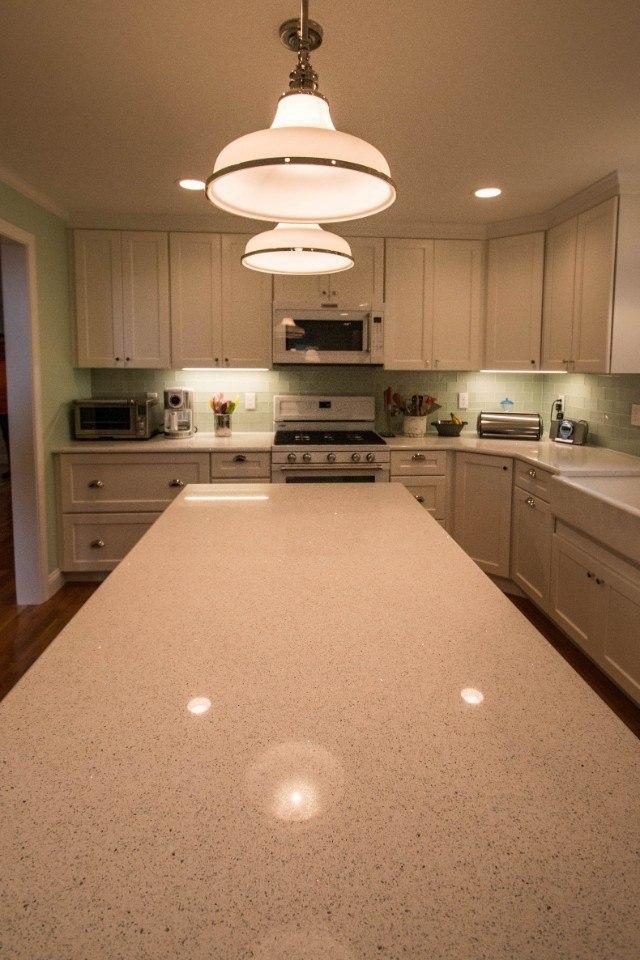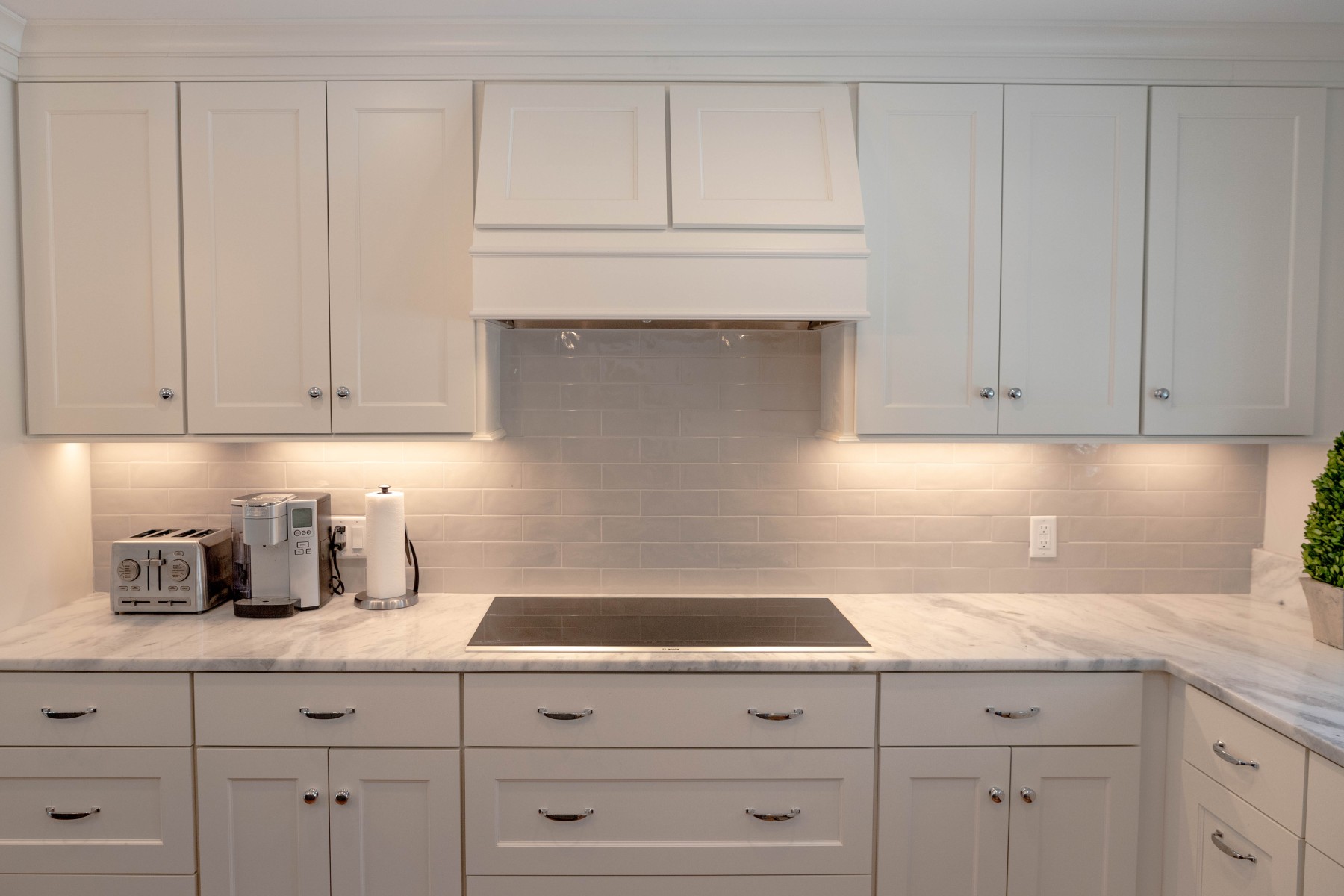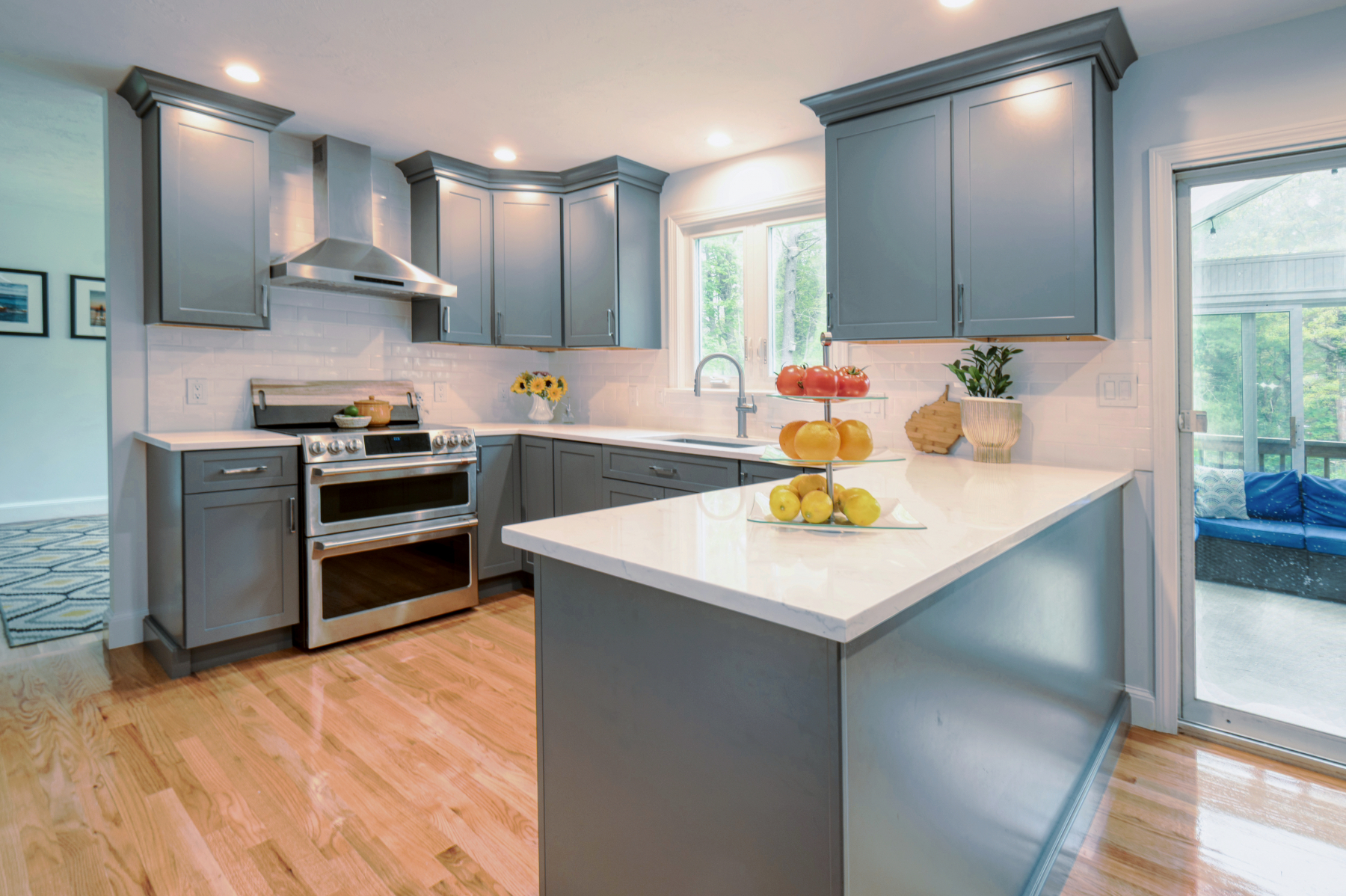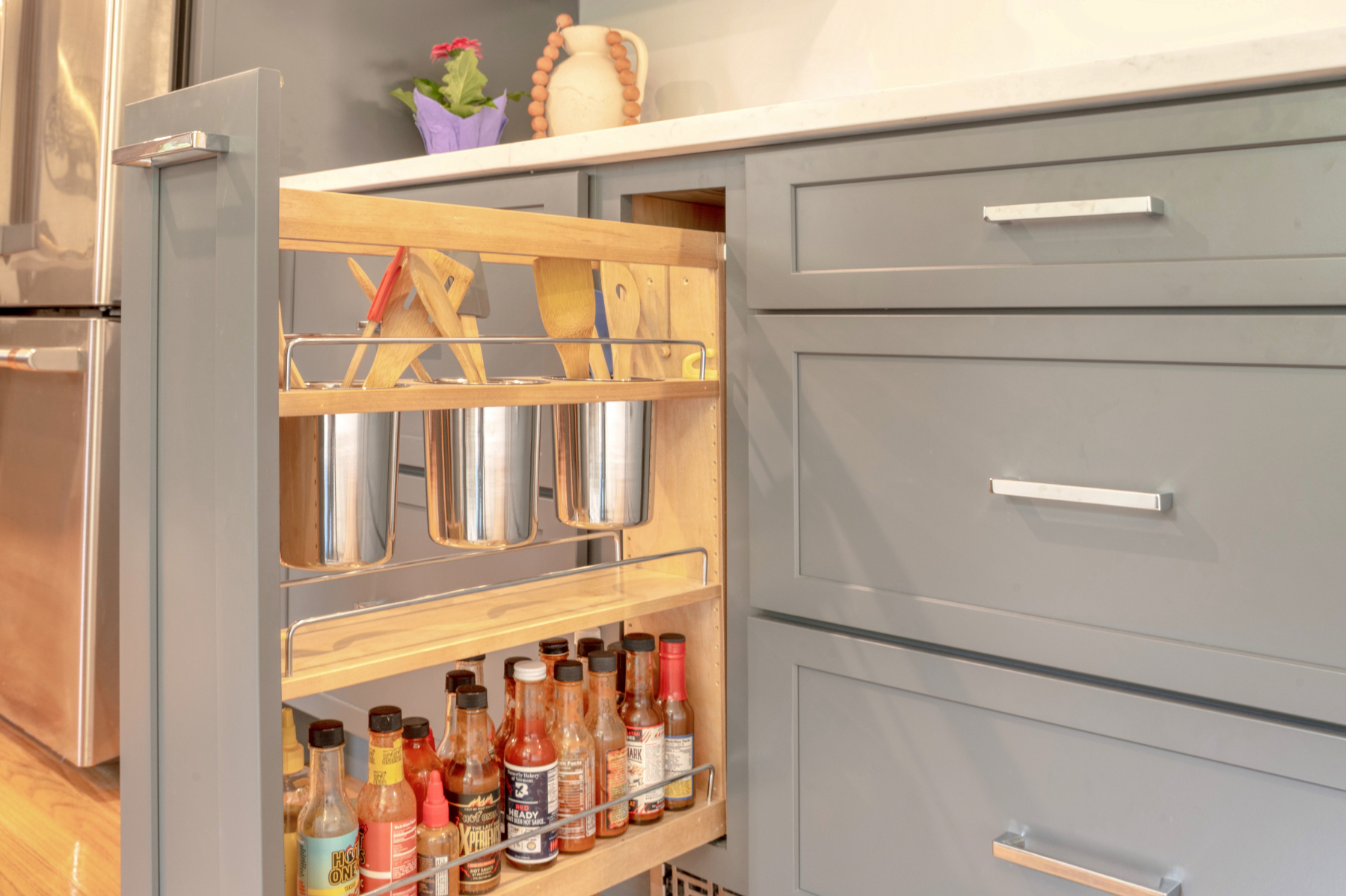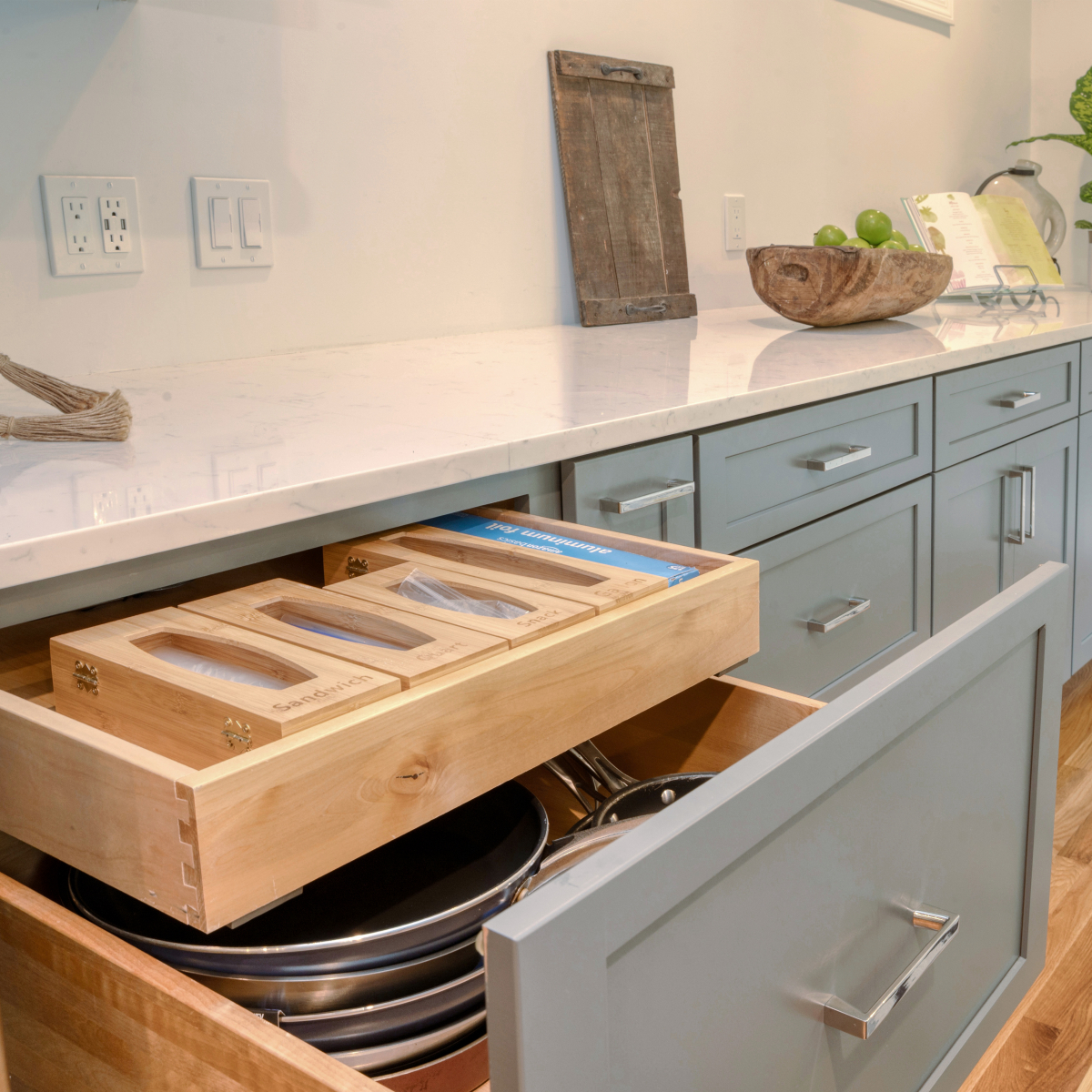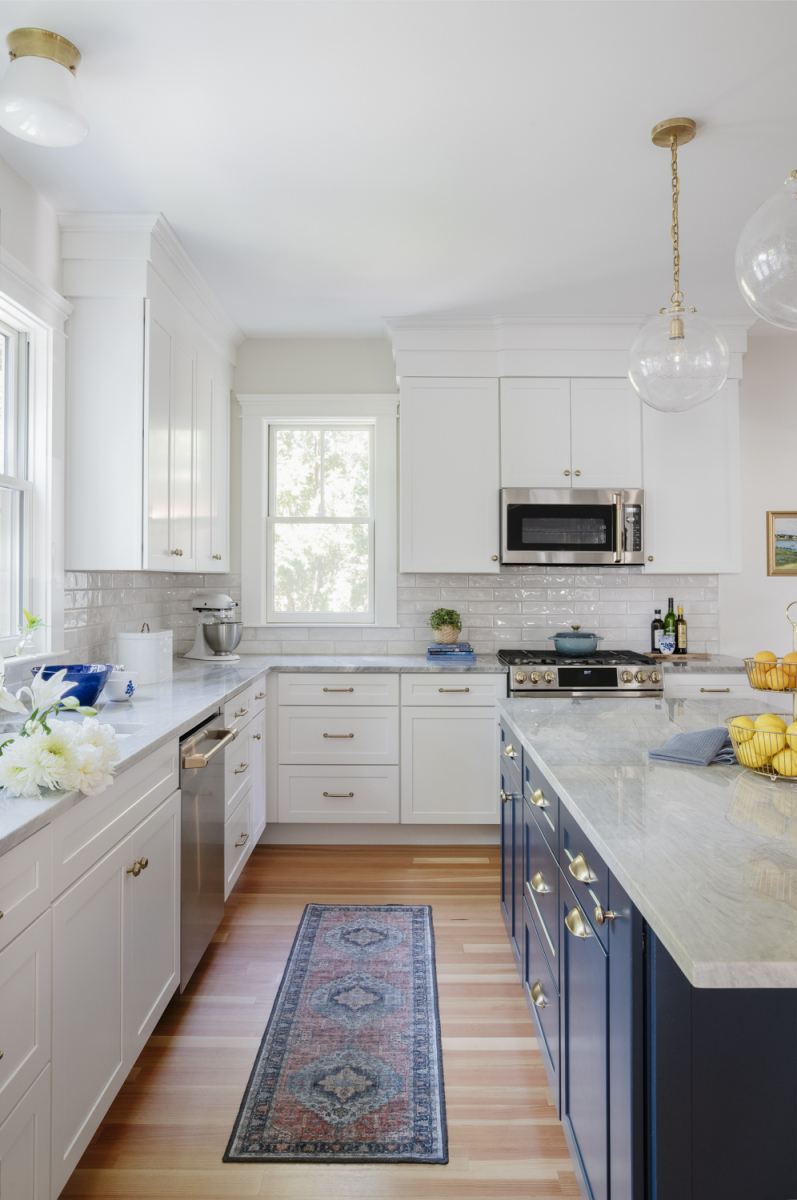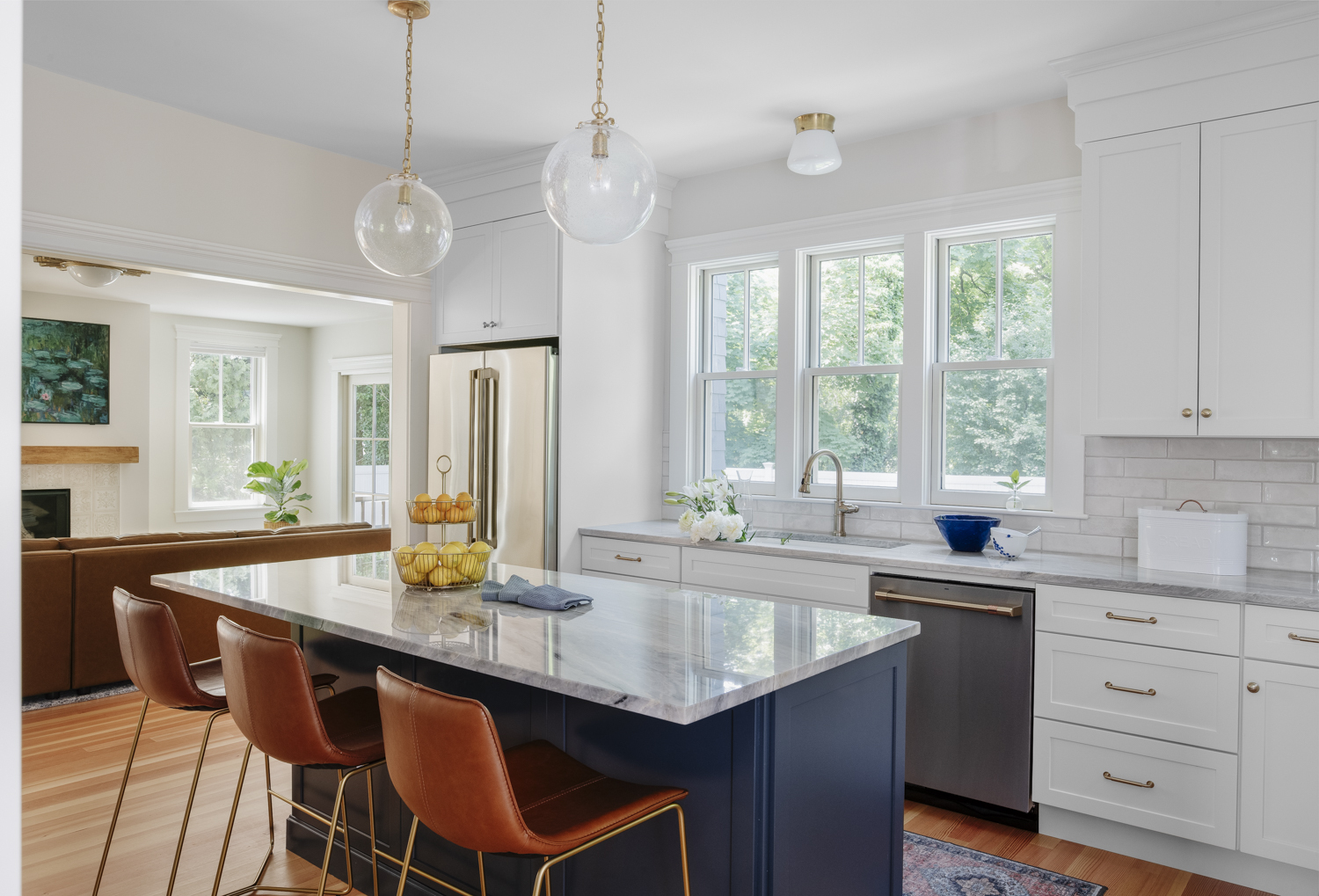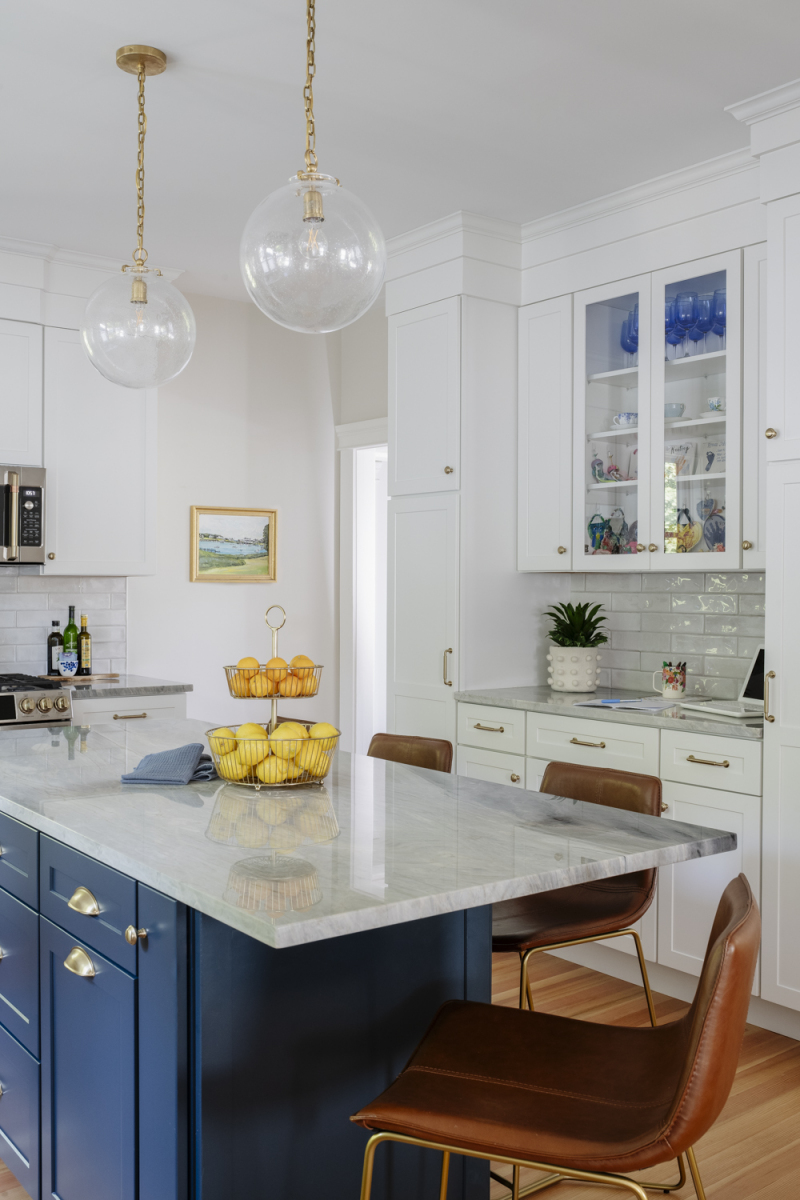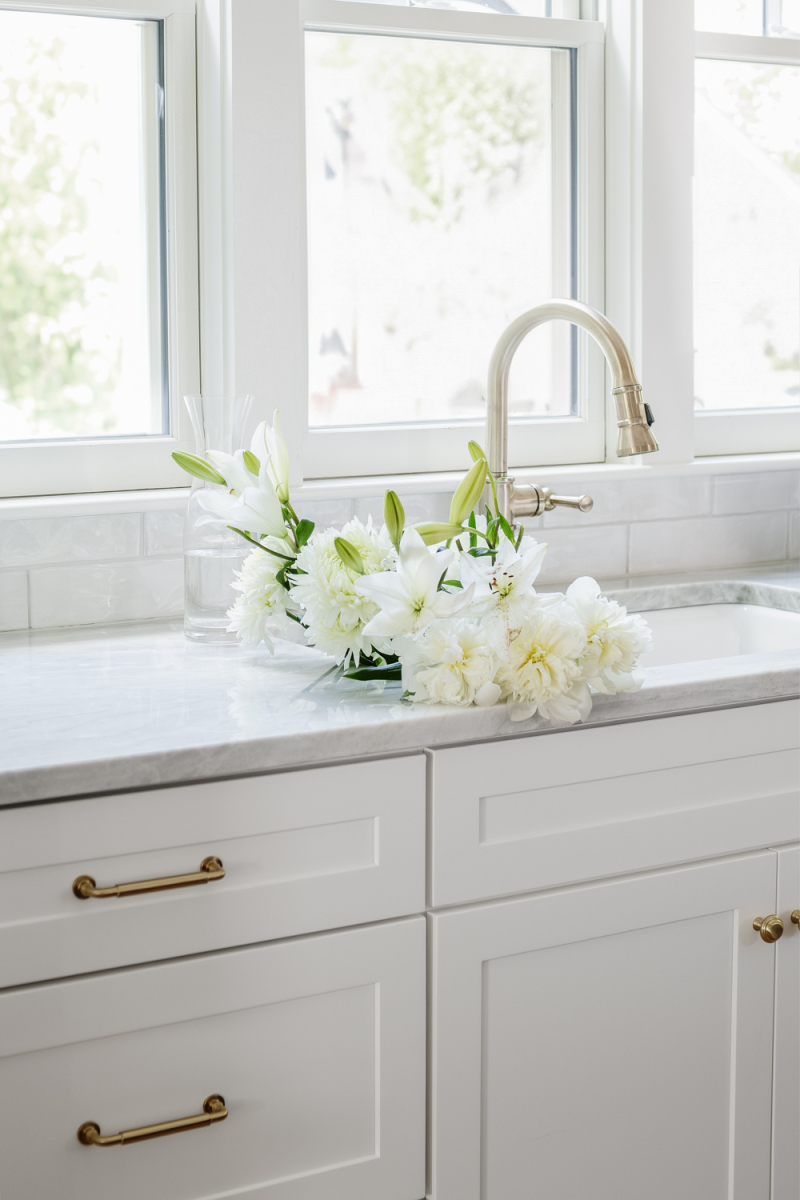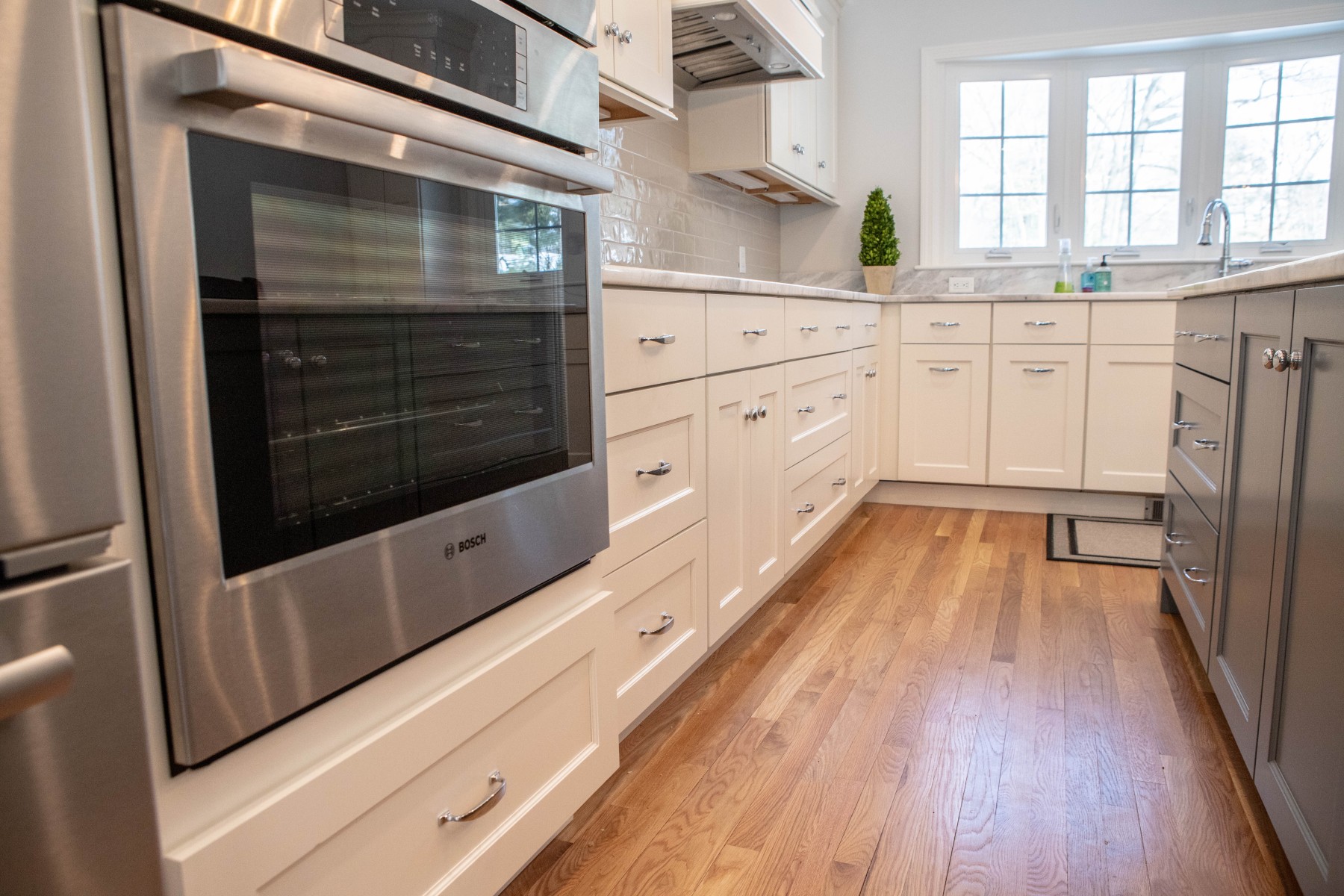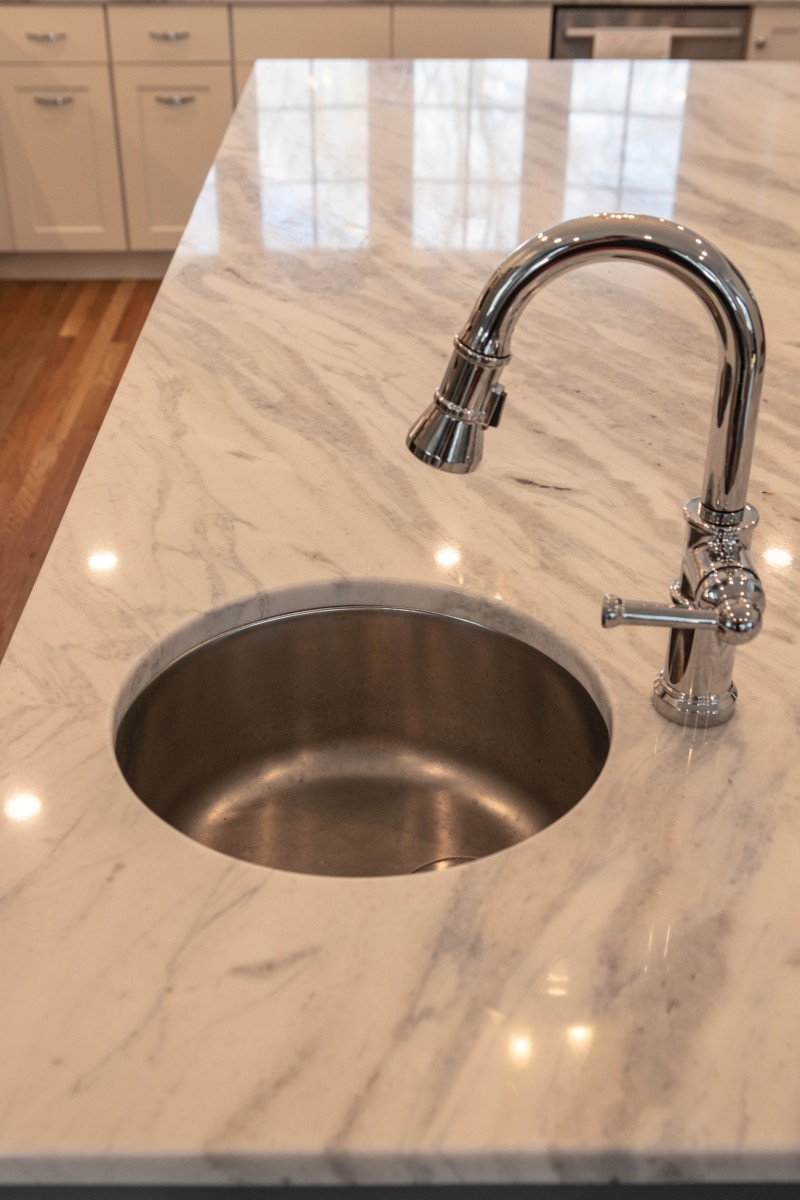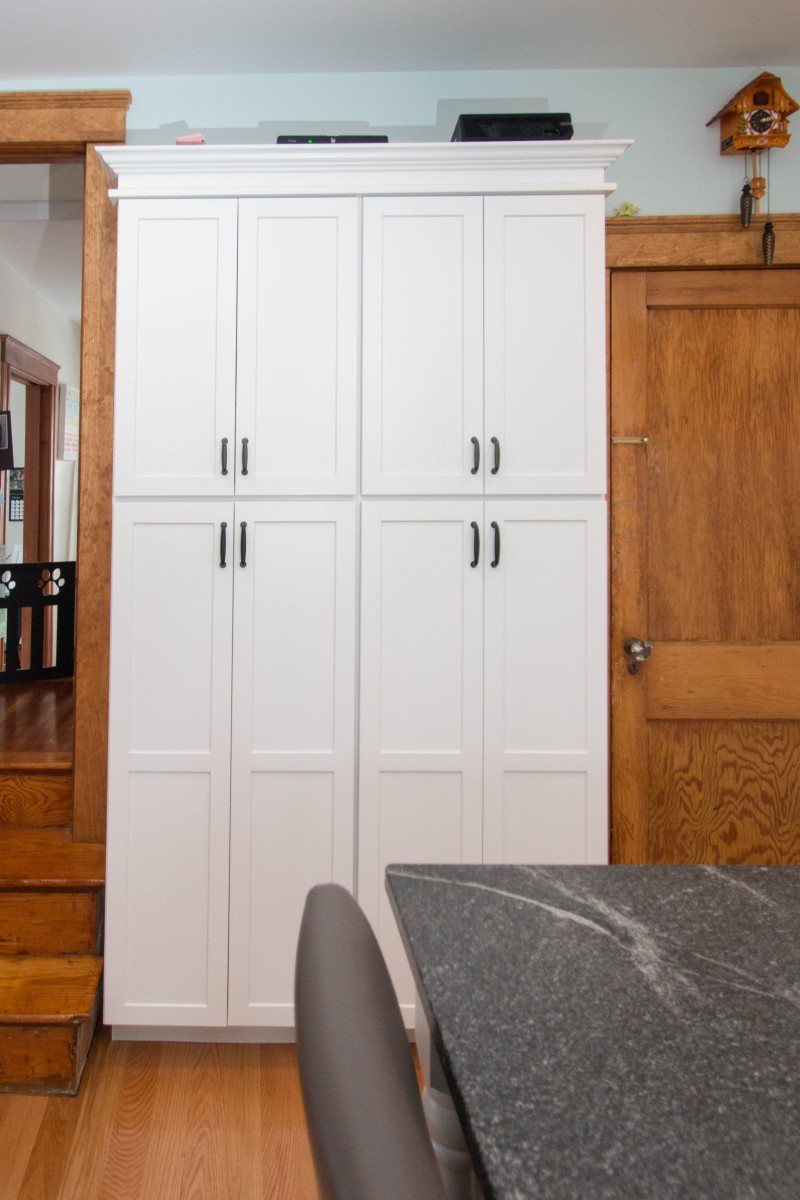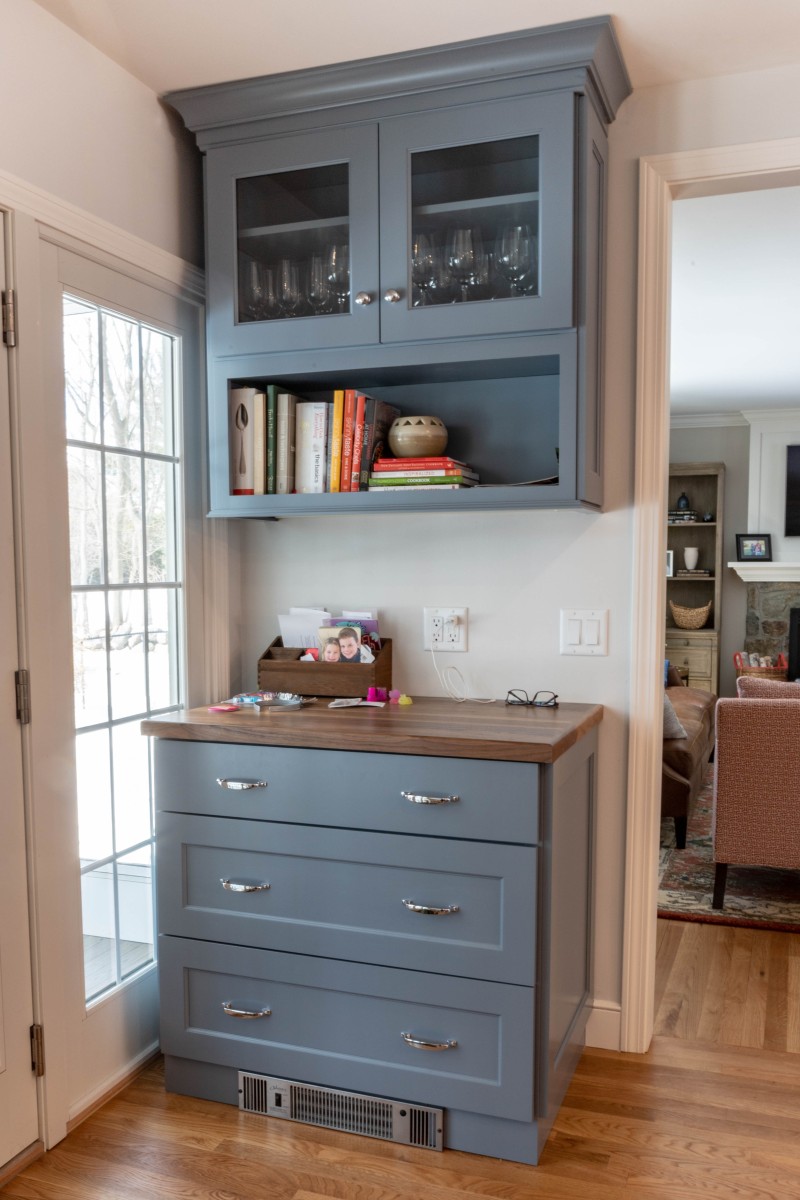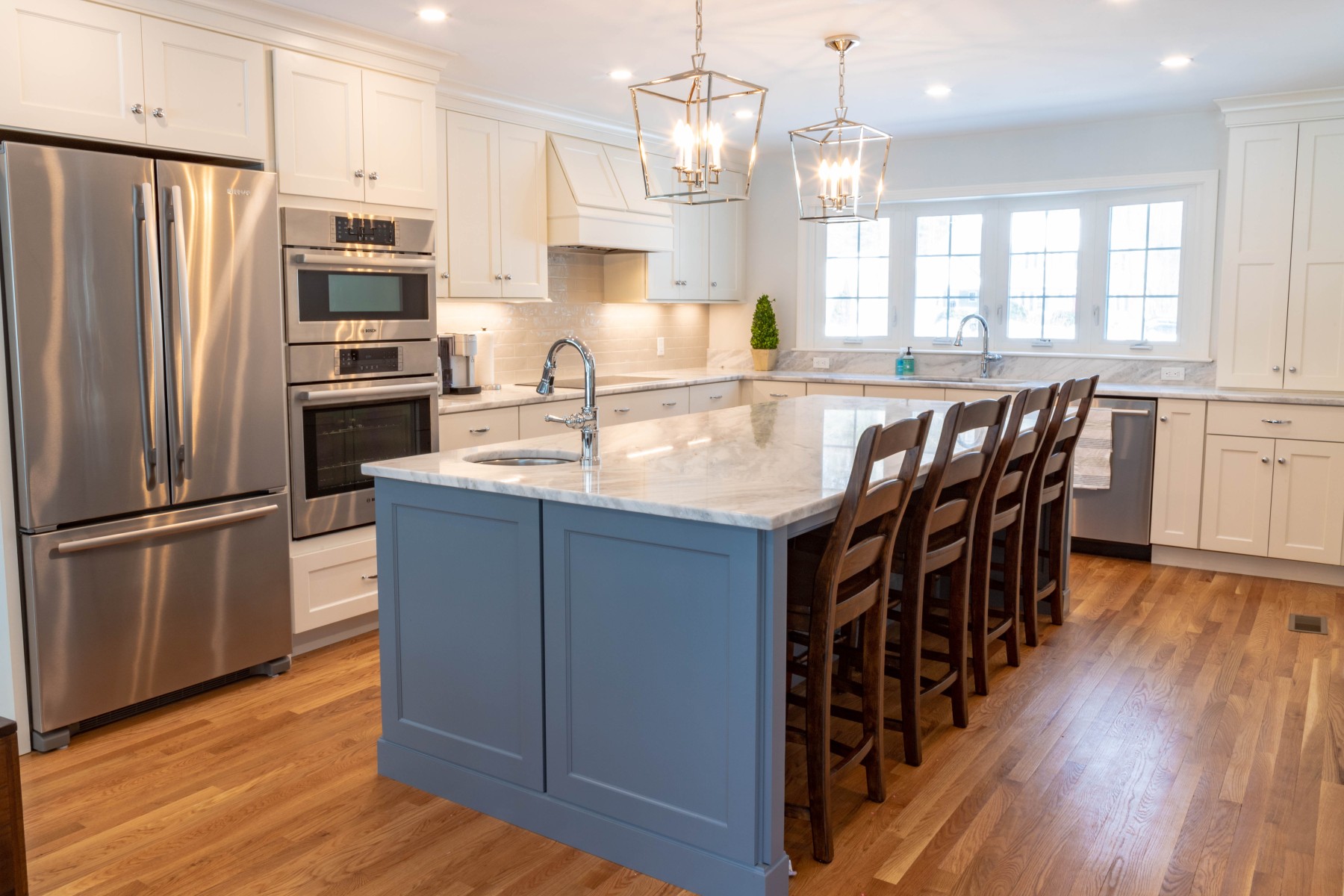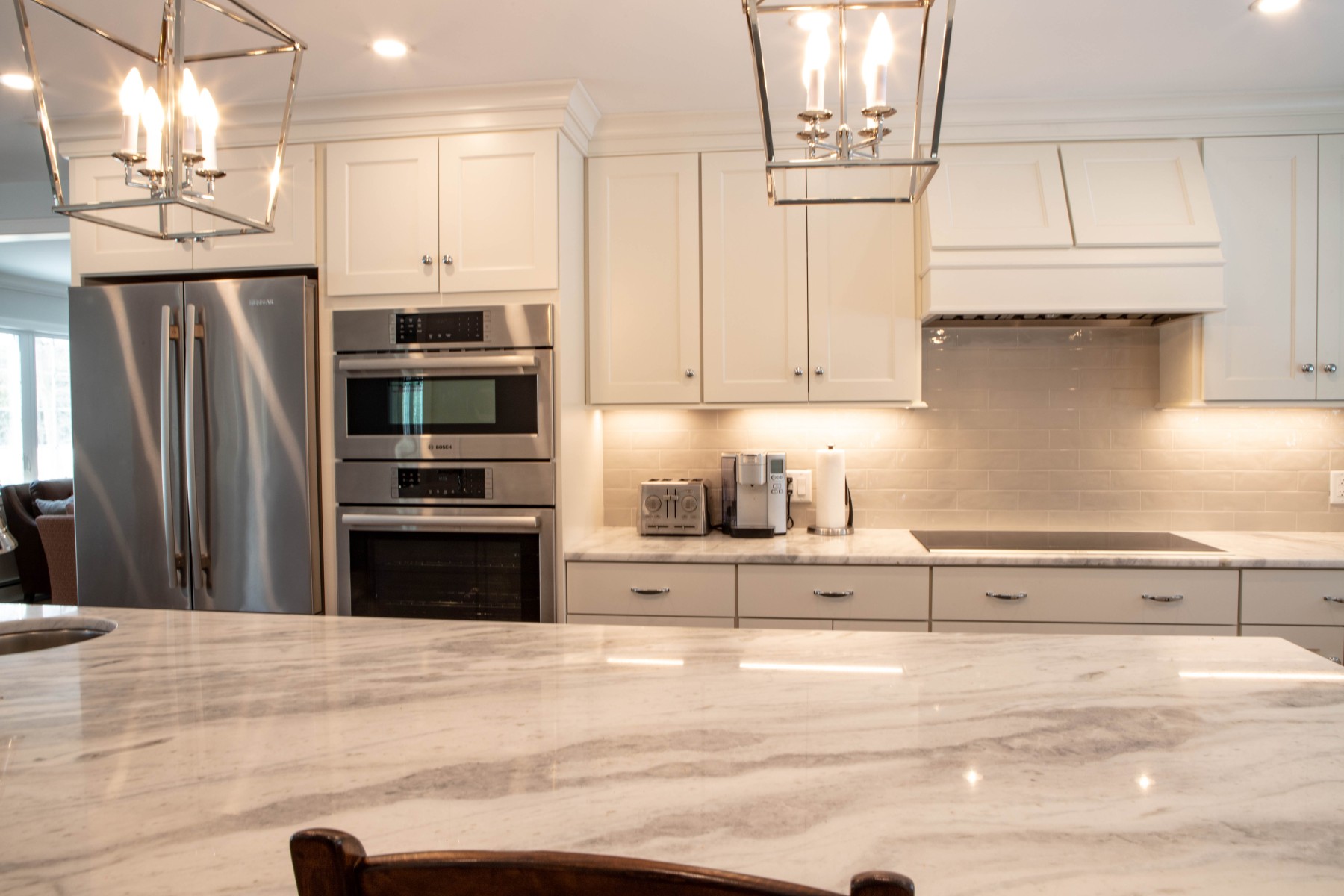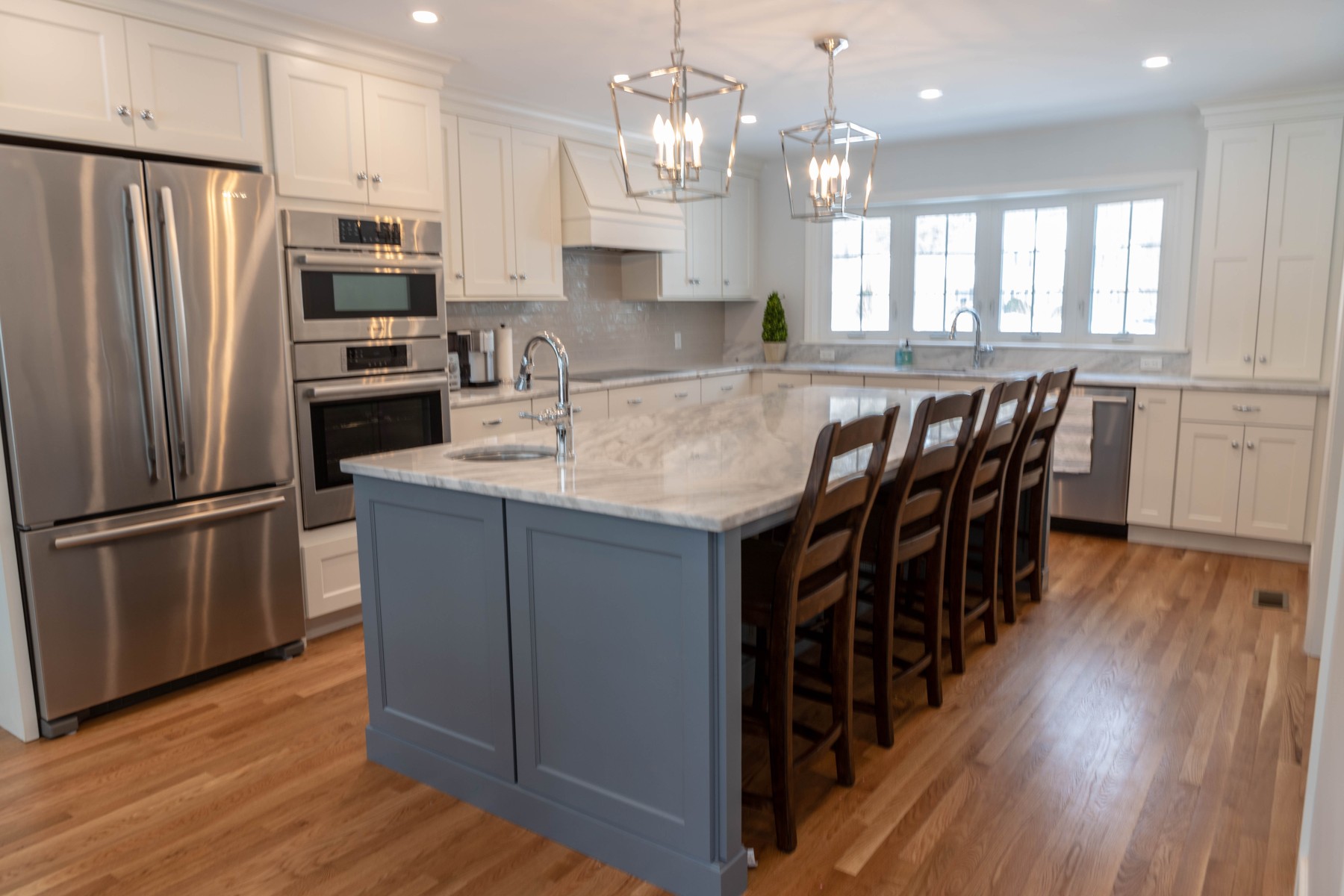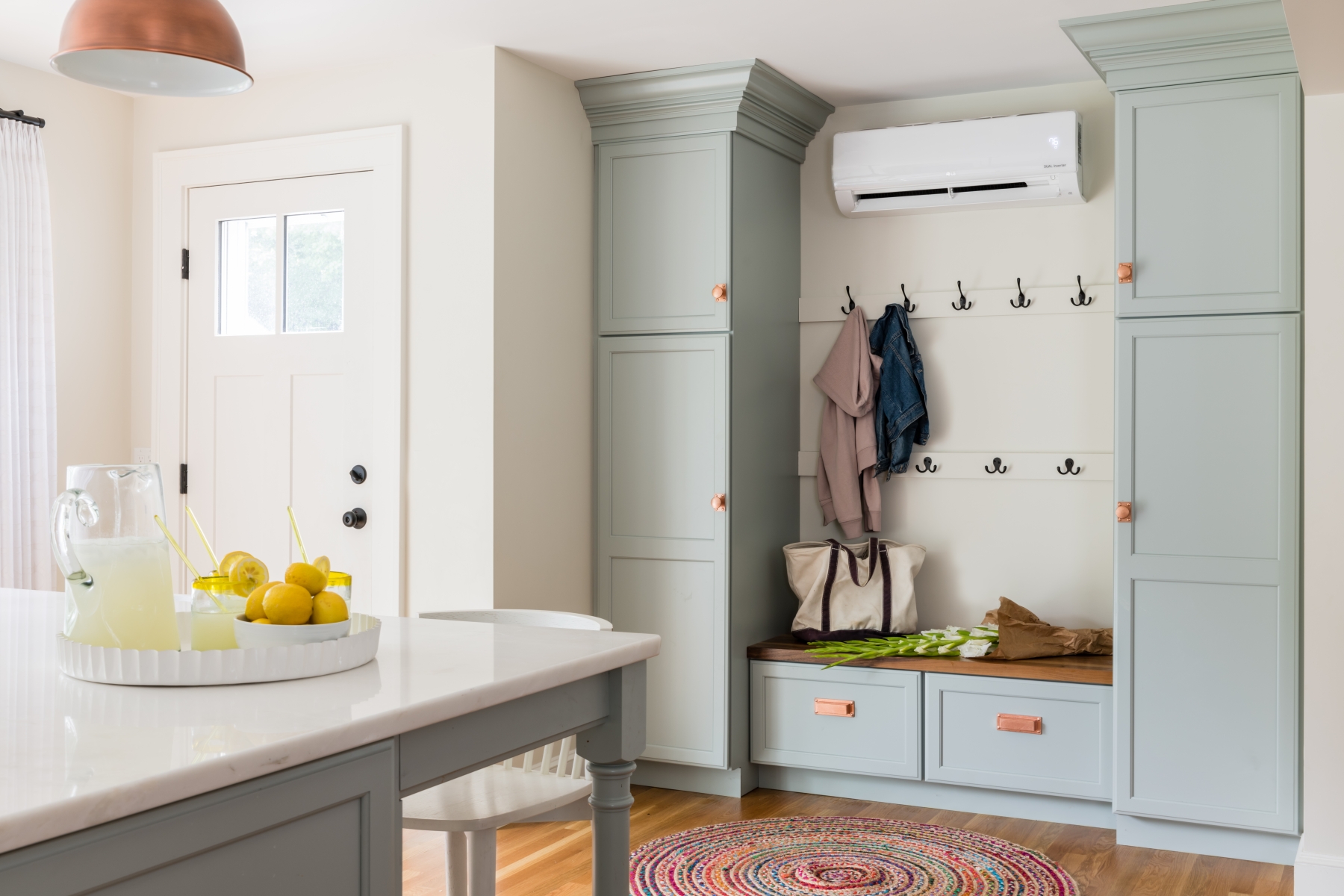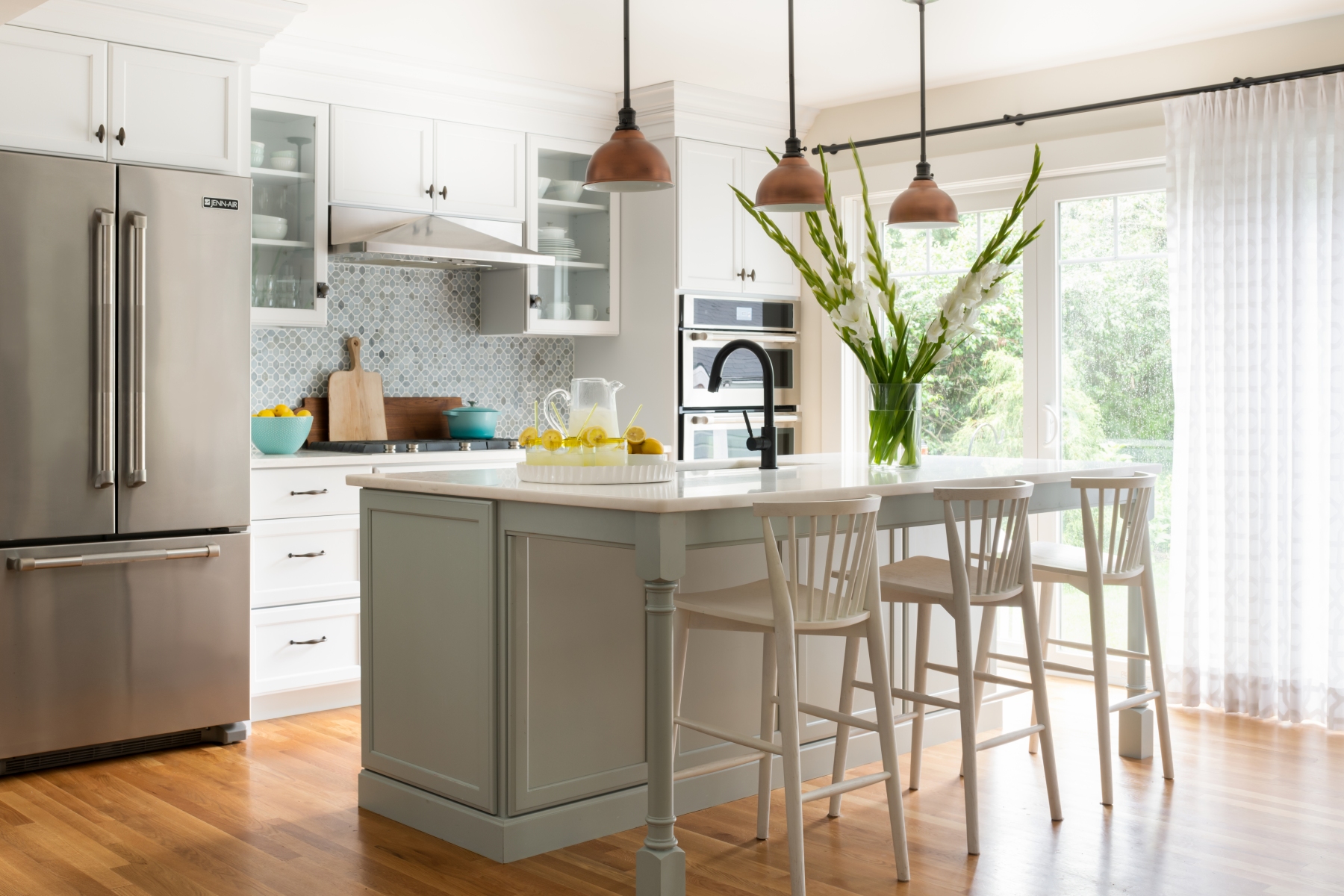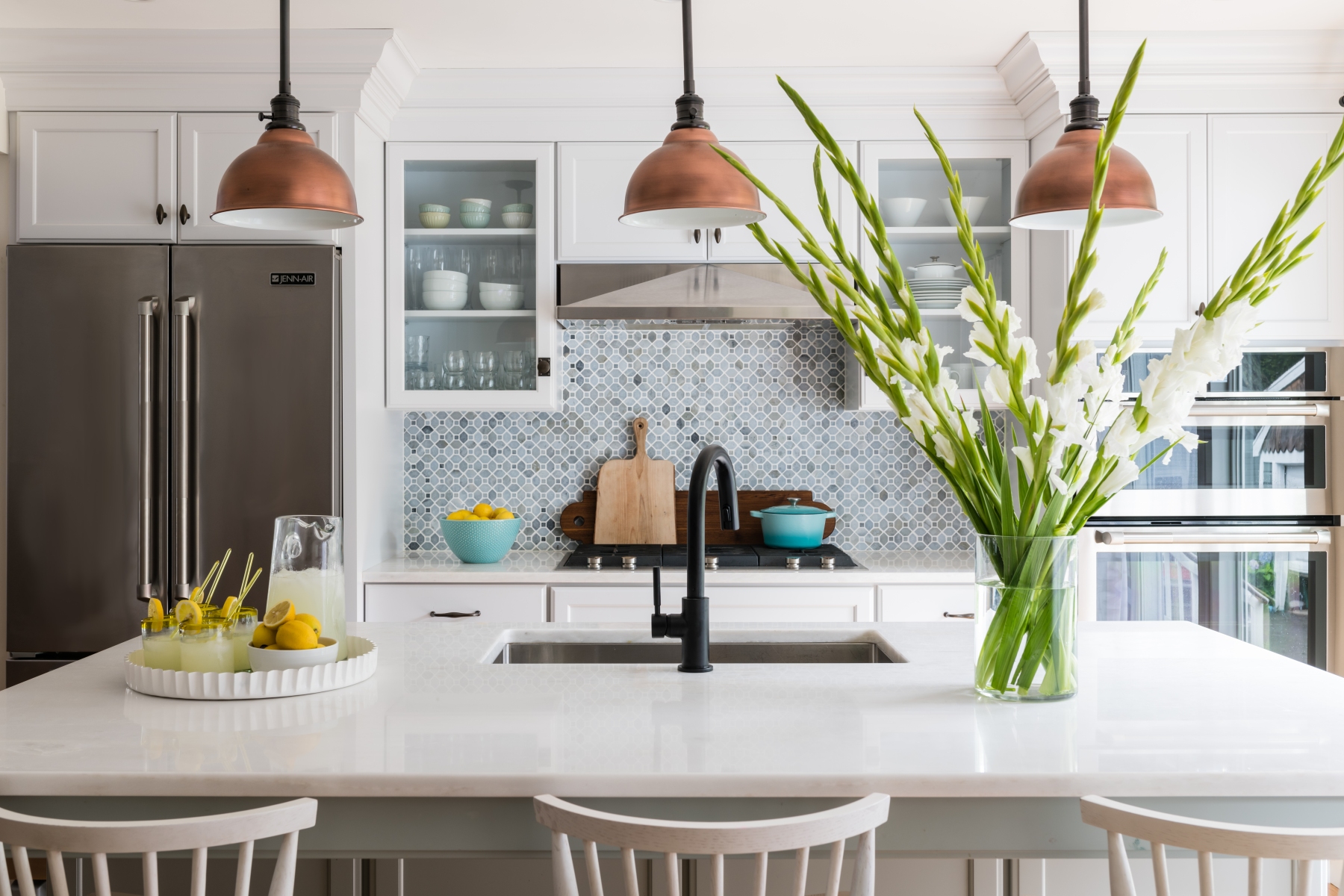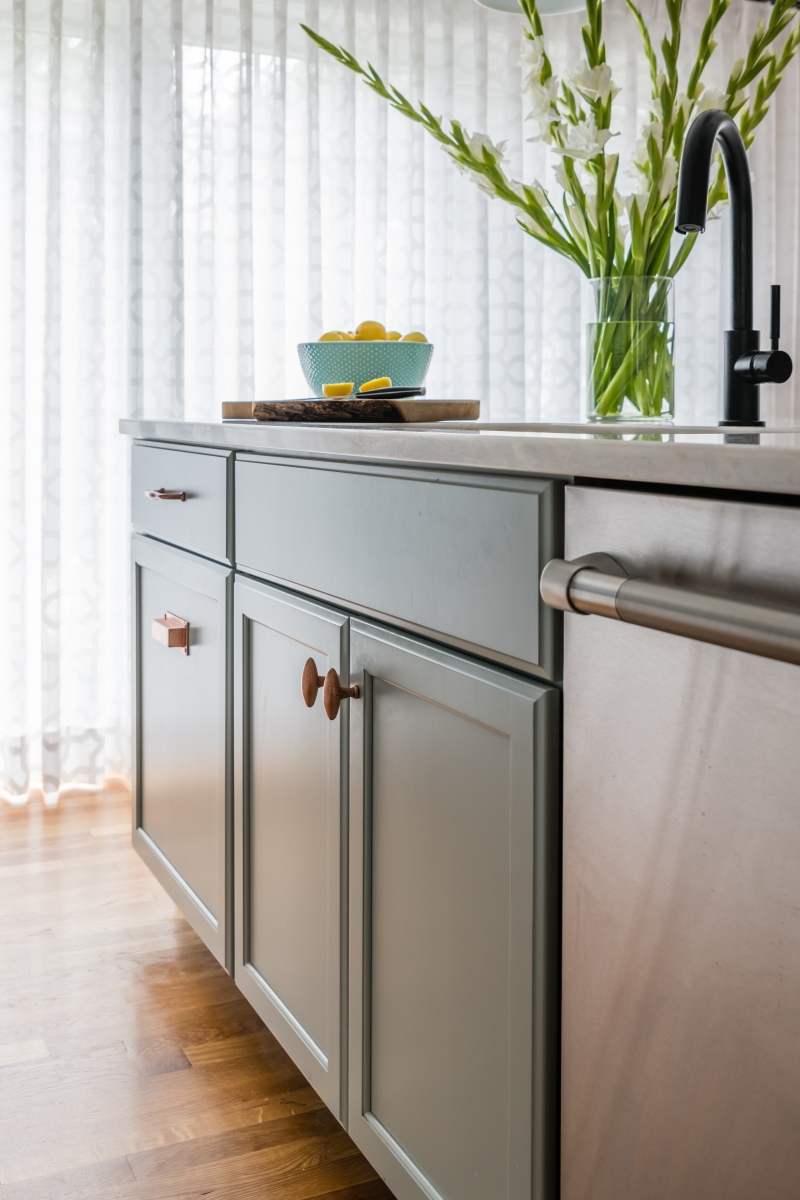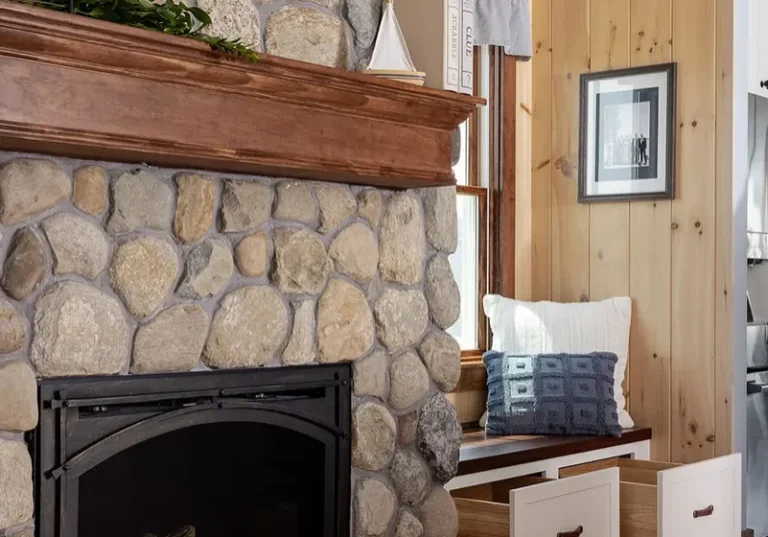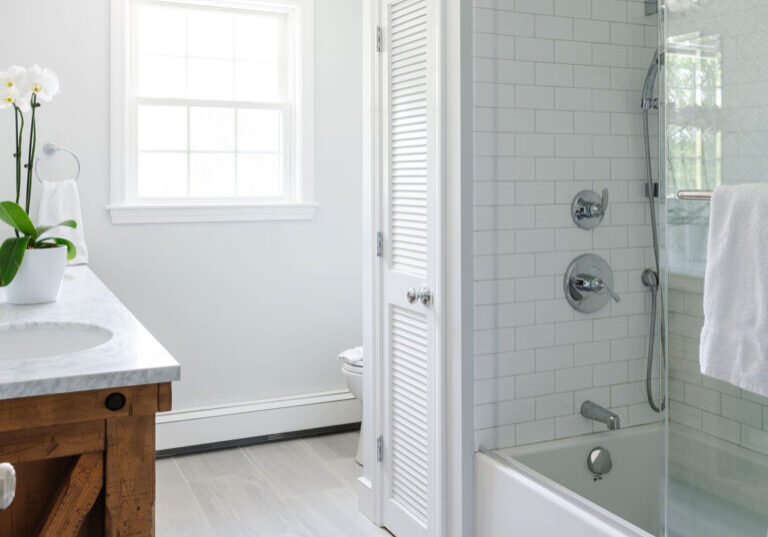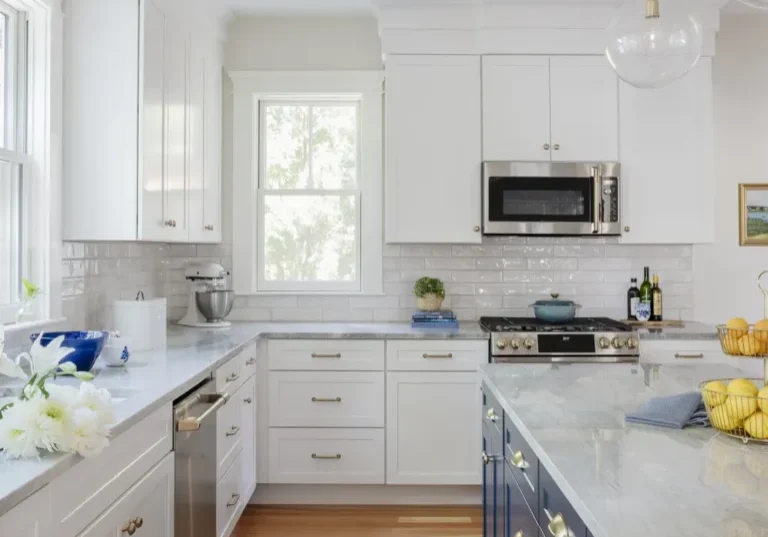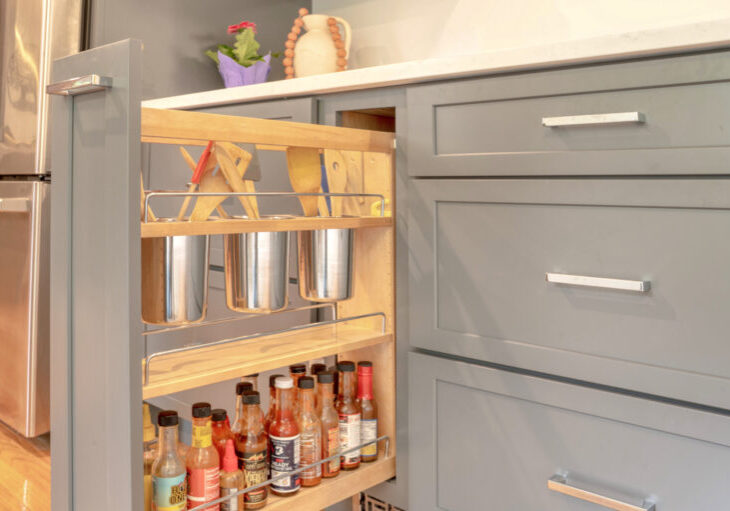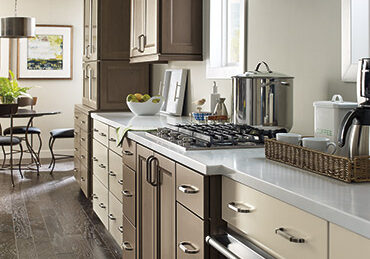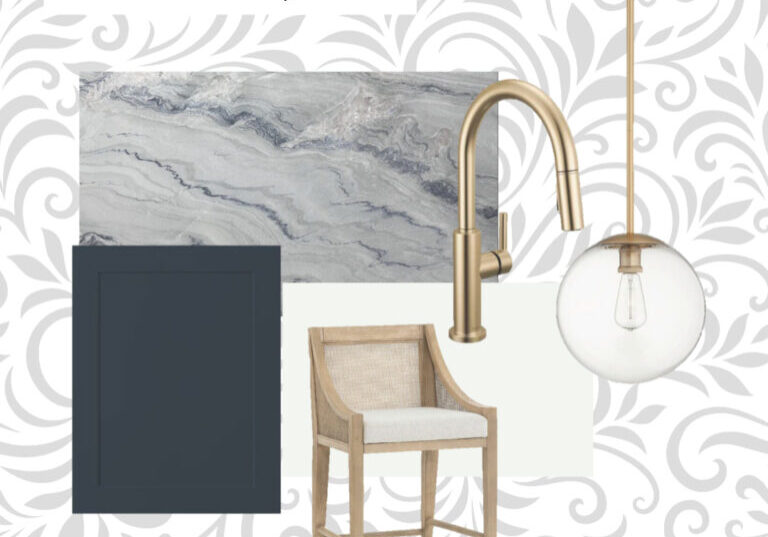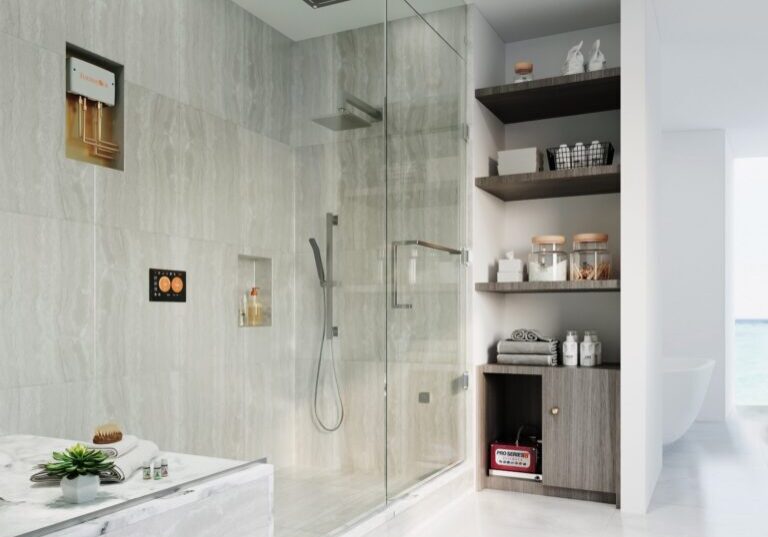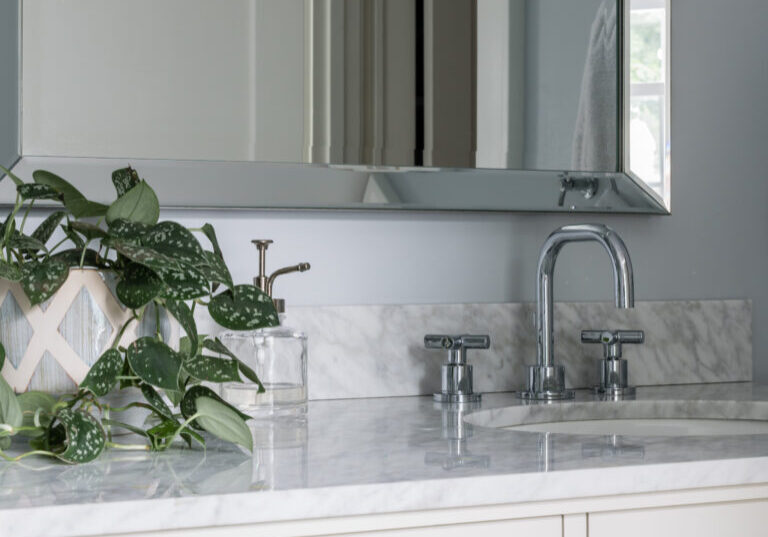Quartz vs. Granite Countertops
Installing new countertops is a big commitment and we want you to make the best selection for your needs. You may be asking yourself what the similarities and differences of granite and quartz countertops are? Figuring out what is important to you is crucial to narrowing down your countertop search.
The Differences
Granite countertops are some of the most aesthetically pleasing countertops you can find on the market today. Quartz (also called granite composite) is made of crushed quartz, stone dust, and acrylic resin. Some popular brands/manufacturers of quartz colors are: Silestone, Ceasrstone, Cambria, and LG.
Unlike granite, quartz can be customized to your design needs. They can be shaped how you like and color customized. If you pick granite, your countertops are sure to be one-of-a-kind… because they are. Granite is also heat resistant because of its natural properties, so you can put the hot plates anywhere. Quartz matches up well and is also heat resistant. However, the fillers used in quartz are not which makes it more susceptible to heat damage. Granite retains its integrity when exposed to high temperatures.
| Granite | Quartz | |
| Aesthetic Appeal | Natural, unique, one-of-a-kind slabs | Lots of customizable colors & designs |
| Heat Resistance | Excellent; can place hot plates directly | Good, but fillers can be susceptible to heat damage |
| Maintenance | Annual sealing to prevent stains and scratches | No sealing needed, easier to clean |
| Pricing | Higher cost, but offers timeless beauty | Can be more budget-friendly |
| Composition | Purely natural stone | Crushed quartz, stone dust, and resin |
| Sanitation | More porous, requires meticulous cleaning | Non-porous, more sanitary and easier to clean |
| Customization | Limited to natural patterns and colors | High customization options for color and shape |
Pros and Cons
Pure granite must be sealed properly once a year to protect from scratching and stains. Quartz does not require sealing. It is made for indoor use and exposure to direct UV light over time can affect the quality of color. Quartz is non-porous which makes it more sanitary because they are easier to clean than granite. Granite is naturally occurring and is more porous, so it needs to be more meticulously sanitized- but it is possible!
Granite is often more expensive than quartz and requires more effort to keep the stone in great condition. It is beautiful, one-of-a-kind, and timeless. Quartz is great for your wallet and is much more low maintenance. The decision of your countertops is wholly up to you, we pride ourselves in giving our clients the most information possible and the best information possible. Now, what is the best choice for you granite or quartz countertops?
If you have questions about your home improvement project or would like more information, Contact Almar: https://www.almarbuilding.com (781-826-2577) and watch our videos: http://www.youtube.com/almarbuilding

